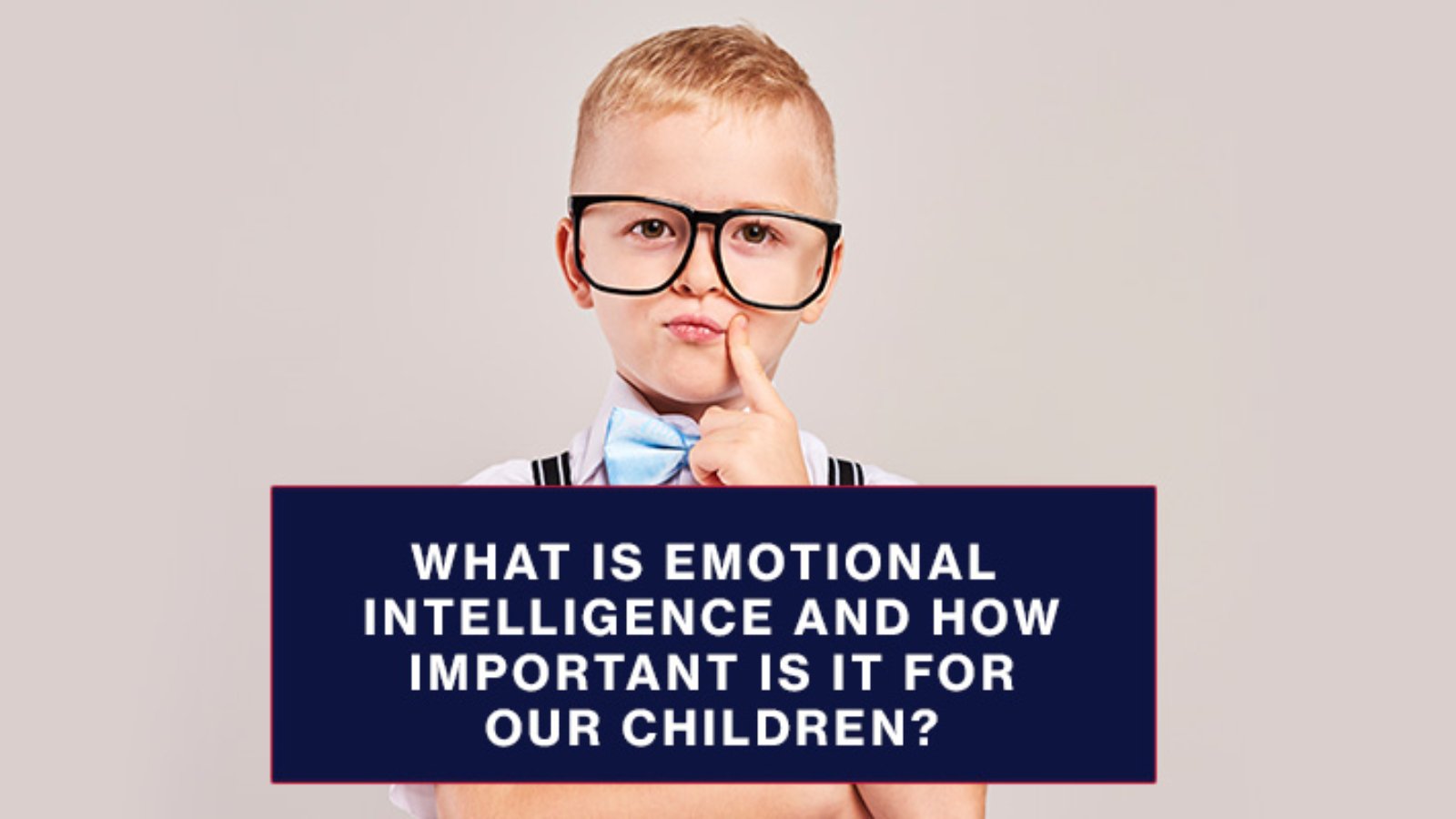I have lost count of the number of parents who have called me concerned about their children’s erratic behavior. For that reason, we will see what is Emotional Intelligence and how important is it for our children?
From little ones who are aggressive with their schoolmates, to withdraw children who have a hard time relating to others. As their parent, you will feel it is your responsibility to help them overcome these issues, so you may be looking for reasons to blame them or punishments to correct them.
Even so, have you ever wondered if your child is capable of handling their own emotions? The complexity of human relationships begins very early in life, therefore, a lack of emotional intelligence will result in the inability to control or manage their emotions.
Emotional intelligence is as important as other types of intelligence because it helps you know yourself and others as you grow up. By encouraging it in children, their learning will improve, they will be able to resolve conflicts more easily, and it will encourage better personal and social well-being.
If you feel that you invest a lot of effort into making your child do their homework, get good grades, or behave the way you want them to, keep in mind that proper development is not only focused on academic intelligence. It’s time for me to teach you what emotional intelligence is. Let’s start.
What is emotional intelligence?
Emotional intelligence is a set of skills for the correct management of emotions, for example, motivation, empathy, enthusiasm, and self-control. These skills can be acquired from birth or learned throughout life. That is why both adults and children are able to develop them.
This concept was first used by the American psychologists Peter Salovey & John Mayer in 1990. Later, it became the title of a book by author Daniel Goleman.
Unlike what you may believe, emotional intelligence does not having no emotional reaction to stimuli. On the contrary, it is about the reactions you have to them. You may be surprised by this, but the reactions provoked by emotions are many times greater than the emotion itself.
That is why an emotionally intelligent person will have the following characteristics:
- They have a deep knowledge of their emotions: Those who develop emotional intelligence can analyze their emotions and interpret them. They just don’t just feel them.
- These people do not repress their feelings: They show sincerity and authenticity regarding their feelings. Besides, they can also express their feelings clearly.
- They show a balance in their emotions: It’s all about balance, and how they are able to identify the bad and the good. They are always looking for helpful solutions.
Considering all the above, it is logical to want our children to have this kind of intelligence. However, first it is fundamental that, as parents, we are able to educate ourselves and follow the path that has been established by our God.
What are emotions?
In a technical way, emotions are physiological reactions that we have to adapt to the environment we are in. In other words, our brain has the great capacity to modify our cognition to use behaviors that allow us to survive depending on the situation. Basically, emotions are adaptive functions.
At the same time, this function has physiological components (an involuntary reaction, such as accelerated breathing), cognitive components (a subjective experience), and behavioral components (the change of behavior, such as movements or facial gestures).
According to Paul Ekman, there are six basic or primary emotions:
- Fear: Associated with nervousness, restlessness, and anxiety.
- Anger: Associated with hostility, indignation, and rage.
- Joy: Associated with pleasure, amusement, and ecstasy.
- Surprise: Associated with discovery, expectation, and dynamism.
- Disgust: Associated with disgust or rejection.
- Sadness: Associated with isolation or decreased energy.
Why is emotional intelligence important?
If your child is, for example, not good at math, but instead of asking for your help, he or she screams and gets frustrated easily, you will understand the importance of emotional intelligence. Children who have it are able to solve problems by managing their emotions wisely.
But giving it to your children, it is not really something you can measure. There are no tests such as the intelligence quotient (IQ) to know if they have it. But vitality of emotional intelligence in child development is remarkable. A child who is emotionally intelligent will be able to respond well to the surrounding environment. Likewise, he/she will be able to establish better relationships with other children and adults.
I feel that encouraging emotional intelligence is ideal, especially for children who have difficulty concentrating or learning. With emotional intelligence, they will be able to improve their learning skills, and develop in this way.
As a parent, you need to put yourself in your child’s position at every difficult moment. So just imagine that you have learning and attention difficulties, you can’t solve tasks that are easy for your other classmates. Children with these kinds of complications often feel embarrassed and intimidated by learning. But by stimulating their emotional intelligence, you can prepare them for new challenges.
You should also consider the fact that having problems with emotional intelligence could be a sign that the child will have learning or attention difficulties in the future. This is why children with ADHD tend to develop their social skills later and have difficulty interpreting situations accurately.
If your child fits this description, or you identify with what I have said here, do not feel like there is no solution. It is quite the opposite, actually. Emotional intelligence can be modified for each child.


